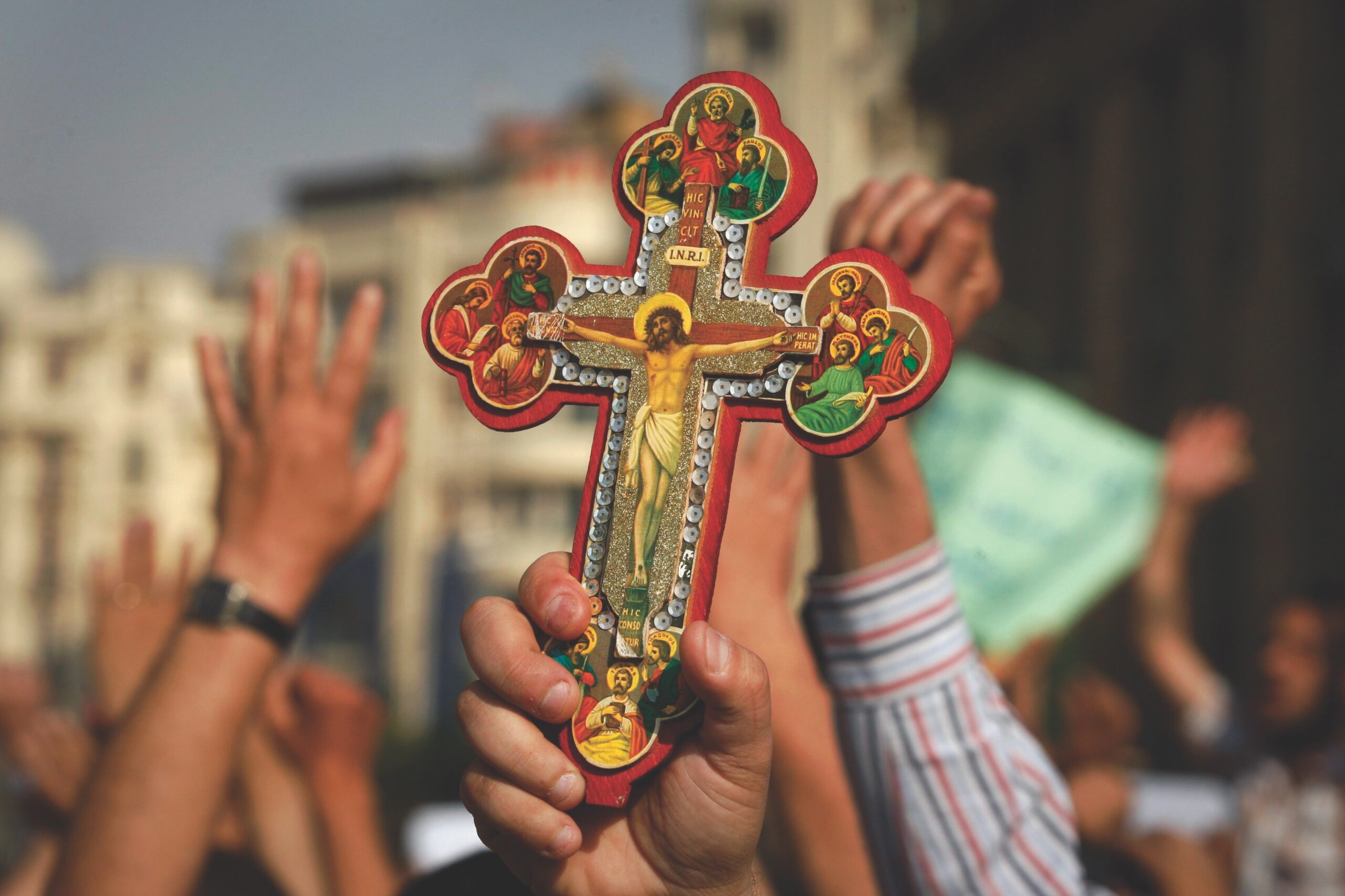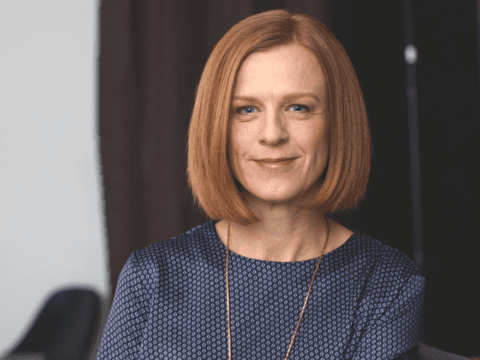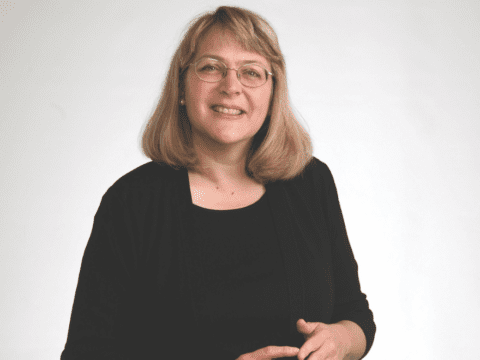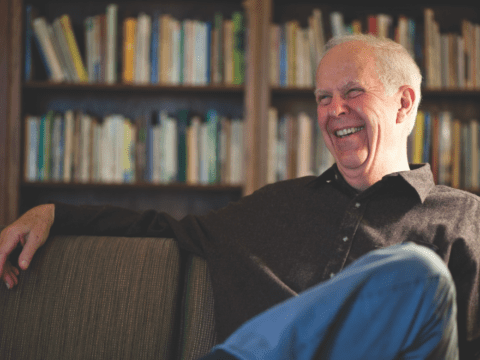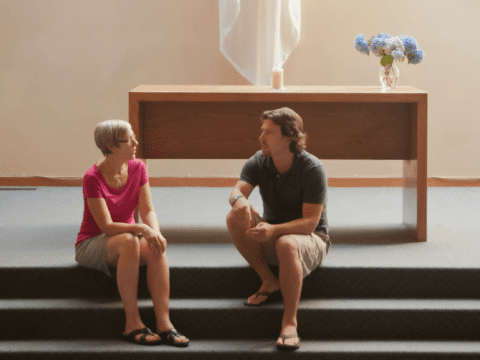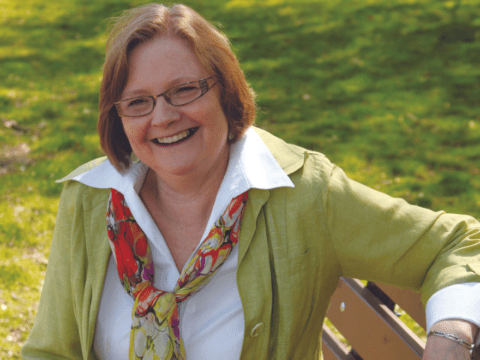In the years following the 1979 Islamic Revolution, Iran’s 300,000 Baha’is faced escalating persecution. Hundreds were executed or “disappeared,” and thousands were imprisoned or denied employment. Their crime: living in a rigidly theocratic state but believing in the ultimate unification of all religions.
Donna Hakimian and her family are Baha’is who fled Iran in the early 1980s, packing what they could of their lives into two suitcases. Her parents thought they would soon return, but they have never gone back. It’s still too dangerous.
Hakimian, now living in Vancouver, grew up in Canada practising her faith and getting an education. “Just being able to attend university means a lot to me,” she says. In Iran, Baha’is were forced to create their own post-secondary institute; its leaders are now in jail.
At the United Nations last fall, Canada’s Foreign Affairs Minister John Baird cited the plight of Iran’s Baha’is, women, Christians and dissident Muslims while announcing plans for a Canadian Office of Religious Freedom. Six months later, it’s still not entirely clear how the office will operate or what it will do beyond a vague mandate to address religious persecution around the world. Baird continues to hold consultations with religious leaders in Canada and elsewhere.
Many of them have high hopes that the new office will fulfil Baird’s pledge at the UN “to defend the vulnerable, to challenge the aggressor, to protect and promote human rights and human dignity, at home and abroad.” Amid the hopeful voices, though, are accusations that consultations haven’t been broad or transparent enough, and fears that the office may simply be a ploy to lure religious voters.
Few dispute that religious persecution is a problem. According to the U.S.-based Pew Forum on Religion and Public Life, restrictions on and hostilities over religion affect 2.2 billion people, a third of the world’s population.
Religious persecution ranges from hostility between faiths — such as attacks by radical Islamists on Coptic Christians in Egypt — to state-sanctioned suppression of all religions (as in North Korea), minority religions (Christians in Saudi Arabia) or any believers seen as enemies of the state (Jehovah’s Witnesses and some evangelical Christians in Eritrea).
Official restrictions on religion range from France’s ban on wearing face-covering veils, such as the Islamic niqab, to death sentences in Iran for abandoning the Muslim faith. Almost a third of the world’s nations have laws against apostasy, blasphemy and defamation of their dominant religion. A handful enforce them vigorously.
In China, where all religions are subject to state scrutiny and control, the banned Falun Gong alleges that practitioners of the movement have been used as live organ donors and then executed. China has consistently denied the charges.
In 2010, Christians were estimated to comprise 33 percent of the world’s population. The Pew Forum study found that Christians were harassed in more countries — 130 — than any other faith group. Muslims, harassed in 117 countries, were second. And although Jews make up only about one percent of the world’s population, they are fourth on the list, harassed in 75 countries.
Don Hutchinson, vice-president of the Evangelical Fellowship of Canada (EFC), was a panelist at the Department of Foreign Affairs and International Trade’s initial consultation on the proposed Office of Religious Freedom in Ottawa last fall. Subsequent media coverage implied that evangelical Christians were guiding the office’s design.
The notion that Stephen Harper’s Conservative government has teamed up with Christian conservatives is not new. In her 2010 book, The Armageddon Factor, author Marci McDonald outlines how Harper — who grew up in the United Church but now attends an evangelical Christian and Missionary Alliance church — has carefully nurtured those connections.
Hutchinson, a lawyer with a long record of pro-Christian human rights work, brushes off those concerns and denies reports that the consultation was closed or secretive. He also says it’s natural that as a Christian and the chair of a group of evangelicals working on the issue of persecution (the Religious Liberty Commission), he is mainly concerned about Christians.
“So, we’re out engaging on the persecution of Christians,” says Hutchinson, “but I can tell you that the Baha’i community is engaging for the Baha’is and . . . that the different Muslim communities are engaging on behalf of their communities. And we can go down the list.”
Len Rudner, director of community relations and outreach for the newly created Centre for Israel and Jewish Affairs, calls the proposed new office “a worthwhile endeavour.”
“This is certainly more than simply speaking out because we believe our community has something to gain,” he says. “It’s not just about us.”
If Baird’s office is attempting to push only the concerns of certain groups, it’s covering its tracks exceptionally well. In his speech to the UN, after promising to stand up for persecuted minority Buddhists and Muslims in Burma, Baird mentioned concerns about “gays and lesbians threatened with criminalization of their sexuality in Uganda.” That’s not a statement all evangelical churches would encourage.
As well, Canadian representatives of Falun Gong have been welcomed at consultations, something that is sure to annoy Baird’s counterparts in Beijing when he travels there to promote trade.
Joining Christian, Jewish and Baha’i groups at last fall’s consultation were Shia, Sunni and Ahmadiyya Muslims, plus Hindus and Buddhists. Due in part to travel budget cutbacks, the Canadian Council of Churches monitored the event by Internet. The United Church sent Ottawa Presbytery staffer Rev. Lillian Roberts. If the creation of the office had any hidden agenda, she says, it wasn’t apparent at the consultation.
Still, says Imam Abdul Hai Patel, past coordinator of the Canadian Council of Imams, mainstream Muslim groups like his were not invited to the Ottawa meeting. He attended a later Toronto-area consultation along with Roman Catholic Cardinal Thomas Collins.
In the government’s defence, Muslim groups are numerous and varied. Reaching all of them is not easy.
The Muslim Canadian Congress, which did attend the consultation, claims to represent the majority of Canadian Muslims — who, according to the group’s founder, Toronto-based author and radio host Tarek Fatah, defy stereotypes by rarely attending mosques, by opposing Shariah law and by not wearing the hijab.
Fatah, who bills himself as an enemy of militant Islam, says the proposed Office of Religious Freedom is “quite timely.” And he’s blunt about why.
“The main issue here is we’re not talking about the mistreatment of, say, Muslim immigrants in Greece, but the abysmal condition of Christians in Muslim lands,” says Fatah. He chides liberal Christian groups for their reluctance to speak out against the persecution of other Christians.
Announcing the beginning of World Interfaith Harmony Week earlier this year, United Church Moderator Mardi Tindal quoted the United Nations’ acknowledgment that “Our world is rife with religious tension and, sadly, mistrust, dislike and hatred.”
Yet, as Fatah suggests, the United Church is one of those groups that rarely speak out against specific instances of persecution of fellow Christians. Gail Allan, in charge of the denomination’s interchurch and interfaith work, says the church is committed “to be attending to persecution of all communities of faith, wherever that might take place,” and works through the World Council of Churches and its own global partners wherever religious persecution is seen as a problem.
As Allan also points out, United Church analysis often sees non-religious forces behind what seems to be religious persecution. Early in 2011, for example, the church wrote Coptic Christian church leaders to express concerns over the bombing of a Coptic church in Alexandria, Egypt. The letter noted that church bombings in Egypt and Iraq had been “condemned by Muslims and Christians alike and are not at their root expressions of religious hatred or intolerance.” Allan says the ongoing tension between Copts and majority Muslims in the Middle East is “part of a political, economic and social conflict that needs to be addressed.”
No question, a toxic mix of religion, economics, history and politics bubbles beneath the surface of many seemingly religious-based conflicts like the wars in ex-Yugoslavia and ongoing struggles in the Middle East and North Africa. But what appears to be sound socio-political analysis by one group can be seen by others as a tendency of some mainline Canadian Christians, who experience little persecution themselves, to play down its effects abroad.
“I have been challenged by the Jewish community . . . over the years for a general Christian inattention to the persecution of Christians around the world,” says Canadian Council of Churches general secretary Rev. Karen Hamilton. “That’s not to say there are any easy answers, but maybe we need to pay a little more attention.”
Many questions linger about what the new religious freedom office will look like and how it will work. A possible clue lies south of the border. The U.S. Office of International Religious Freedom, founded during the Clinton Administration in 1998, is an arm of the State Department headed by an ambassador-at-large and charged with monitoring violations of religious freedom around the world. The agency reports to the president and secretary of state, and can recommend economic sanctions to Congress. A minor diplomatic row erupted earlier this year when China denied a visa to the current ambassador-at-large, Suzan Johnson Cook, at the very moment that Chinese Vice-President Xi Jinping was in Washington on a state visit.
Today, the U.S. agency works closely with the bipartisan Commission on International Religious Freedom. Staff and leadership are balanced to include representatives of major faith groups. But the agency also has deep roots in the evangelical Christian and neo-conservative movements. That likely explains some of the wariness that has greeted Ottawa’s plans.
Alex Neve, secretary general of Amnesty International Canada, says the proposed new office is “in a general sense . . . a great initiative” but worries about “secretive” consultations and the possibility that the new office may not be “broadly representative” of Canadian religious groups. That’s a view echoed by religious rights crusader and former Edmonton MP David Kilgour: “If you only protest the persecution of your religion and ignore all the others, then you’re in trouble.”
Former United Church moderator Very Rev. Lois Wilson says the proposed Office of Religious Freedom “sounds wonderful” — during her four years in Ottawa as a senator, she tried unsuccessfully to persuade the foreign affairs department to establish an advisory group on religion. She also learned a thing or two about how Ottawa works. “I can’t help but feel that this was put in place to get votes,” says Wilson. “That’s the only reason they do anything, including the Liberals and the NDP.”
***
This story first appeared in The United Church Observer’s May 2012 issue with the title “Compassion for the persecuted or a bid for votes?”

